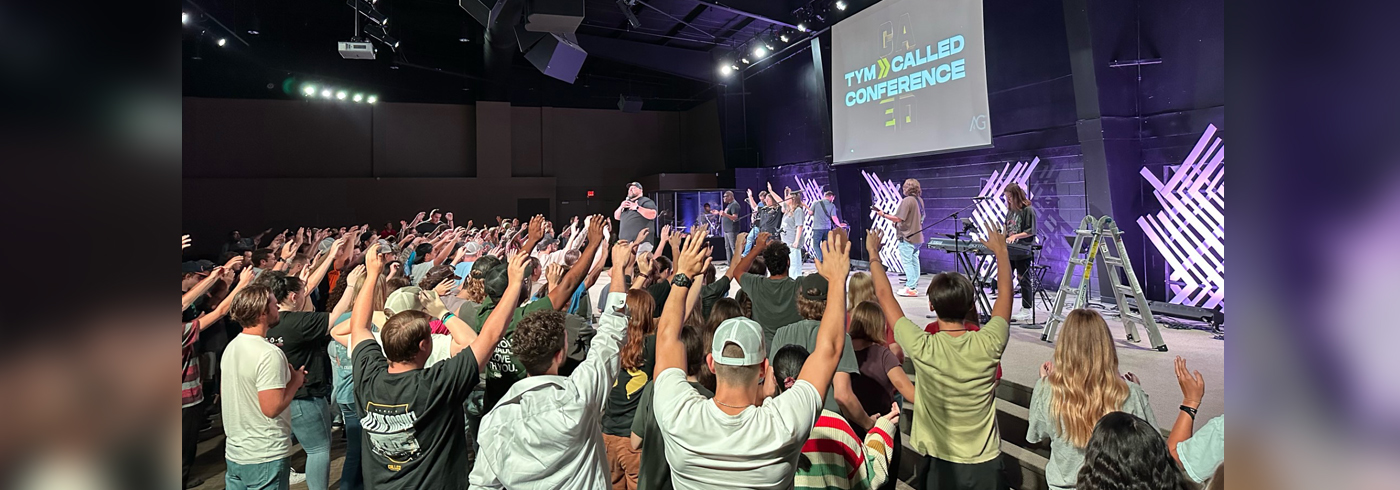CALLED Conferences Help Fill AG Ministerial Pipeline
 CALLED conferences are taking off nationwide and showing promising growth in the pipeline for Assemblies of God ministers.
CALLED conferences are taking off nationwide and showing promising growth in the pipeline for Assemblies of God ministers.
Two years ago, John Zick and the team of CALLED launched an initiative to discover and equip those who had been called to vocational ministry. With the goal of creating a leadership pipeline to fill the once growing gap in credentialed and vocational ministers within the Assemblies of God, Zick knew that this initiative had to be multigenerational.
“The Assemblies of God was seeing 1,000 credential holders not renewing their credentials each year and an annual net loss of around 200,” Zick, the national director of Ministerial Advancement, states.
With its mission clear, CALLED set out to gain, train, and retain ministers for the leadership pipeline. Although the team had initially started with a focus on junior high and high school students, they quickly saw the need to also target elementary aged children between the ages of 7-11 years old.
“We want kids to know that God has a plan and a purpose for their life,” Zick says. “From there, we want to excite them about the call of vocational ministry and build, equip, and support them through their entire ministry journey.”
One of the ways that CALLED decided to create this culture was through CALLED conferences. The original design for these conferences was a four-day camp experience at Evangel University, allowing each district or network to send five students to attend the event. The event introduced students to national leaders such as Doug Clay and Rick DuBose and allowed them to journey to AG points of interest such as the national headquarters of the Assemblies of God, Convoy of Hope, and the World Prayer Center.
Following the event, 32 of the 66 Assemblies of God districts decided to host their own conference in order to start discovering and equipping more individuals called to ministry within their region. The following year, the number of districts hosting their own called conference jumped to 46, representing almost two-thirds of Assemblies of God districts.
“It was very cool to see the response,” says Zick. The CALLED initiative has allowed leeway for each district to host the conference in a way that best suits their area.
“Some districts are doing more of a retreat while others are doing a conference feel,” reports Zick.
However, the common theme among all the CALLED events is the remarkable interest and numerical growth. While the Southern California Network had 120 registered for their event, Zick reports that 400 showed up as the weekend kicked off at Vanguard University.
Similarly, the Tennessee Ministry Network, who had capped their registration at 100 students, welcomed more than 280 youth to their event after interest demanded a larger cap.
Brandon M. Cederblom, the district youth director for the Southern Missouri Ministry Network, reports an increase in students and churches during their second CALLED event.
“We went from 120 to 175 in our second year,” Cederblom states. “That number is even greater when you realize that churches usually only bring two or three students. We have dozens of churches championing this and it’s a great event to be part of,” he says.
According to Cederblom, the nature of the events is distinct, making it an entirely different atmosphere than a typical youth event. While most youth events are missional in attracting students from all walks of life and in various points in the spiritual journey, CALLED events hosts students who Cederblom describes as note-takers, worshippers, and those passionate about pressing into the things of the Spirit.
“Although we thought it would take five to ten years to see the impact of CALLED, in just two years we are already seeing numbers trend in the positive,” states Zick.
In 2022, the Assemblies of God saw positive growth between the number of new credential holders and those whose credentials were not renewed. To continue momentum, Zick and the CALLED team have begun creating resources to help ministers in their first five to ten years of ministry.
“If you can make it past year five in ministry, you’re more than likely going to make it,” says Zick.
The team’s projects for supporting and retaining ministers includes a “first season” cohort, where ministers who are in their first years can come together to encourage one another and build relationships with others who are walking the same journey. Additionally, the team will be launching a new book full of tips for new ministers and will feature advice from leaders around the country as well as a place for personal reflection.
“The Assemblies of God was seeing 1,000 credential holders not renewing their credentials each year and an annual net loss of around 200,” Zick, the national director of Ministerial Advancement, states.
With its mission clear, CALLED set out to gain, train, and retain ministers for the leadership pipeline. Although the team had initially started with a focus on junior high and high school students, they quickly saw the need to also target elementary aged children between the ages of 7-11 years old.
“We want kids to know that God has a plan and a purpose for their life,” Zick says. “From there, we want to excite them about the call of vocational ministry and build, equip, and support them through their entire ministry journey.”
One of the ways that CALLED decided to create this culture was through CALLED conferences. The original design for these conferences was a four-day camp experience at Evangel University, allowing each district or network to send five students to attend the event. The event introduced students to national leaders such as Doug Clay and Rick DuBose and allowed them to journey to AG points of interest such as the national headquarters of the Assemblies of God, Convoy of Hope, and the World Prayer Center.
Following the event, 32 of the 66 Assemblies of God districts decided to host their own conference in order to start discovering and equipping more individuals called to ministry within their region. The following year, the number of districts hosting their own called conference jumped to 46, representing almost two-thirds of Assemblies of God districts.
“It was very cool to see the response,” says Zick. The CALLED initiative has allowed leeway for each district to host the conference in a way that best suits their area.
“Some districts are doing more of a retreat while others are doing a conference feel,” reports Zick.
However, the common theme among all the CALLED events is the remarkable interest and numerical growth. While the Southern California Network had 120 registered for their event, Zick reports that 400 showed up as the weekend kicked off at Vanguard University.
Similarly, the Tennessee Ministry Network, who had capped their registration at 100 students, welcomed more than 280 youth to their event after interest demanded a larger cap.
Brandon M. Cederblom, the district youth director for the Southern Missouri Ministry Network, reports an increase in students and churches during their second CALLED event.
“We went from 120 to 175 in our second year,” Cederblom states. “That number is even greater when you realize that churches usually only bring two or three students. We have dozens of churches championing this and it’s a great event to be part of,” he says.
According to Cederblom, the nature of the events is distinct, making it an entirely different atmosphere than a typical youth event. While most youth events are missional in attracting students from all walks of life and in various points in the spiritual journey, CALLED events hosts students who Cederblom describes as note-takers, worshippers, and those passionate about pressing into the things of the Spirit.
“Although we thought it would take five to ten years to see the impact of CALLED, in just two years we are already seeing numbers trend in the positive,” states Zick.
In 2022, the Assemblies of God saw positive growth between the number of new credential holders and those whose credentials were not renewed. To continue momentum, Zick and the CALLED team have begun creating resources to help ministers in their first five to ten years of ministry.
“If you can make it past year five in ministry, you’re more than likely going to make it,” says Zick.
The team’s projects for supporting and retaining ministers includes a “first season” cohort, where ministers who are in their first years can come together to encourage one another and build relationships with others who are walking the same journey. Additionally, the team will be launching a new book full of tips for new ministers and will feature advice from leaders around the country as well as a place for personal reflection.



